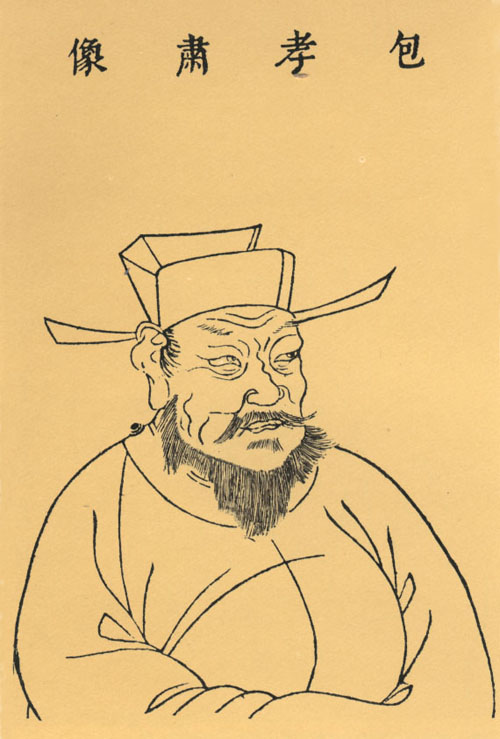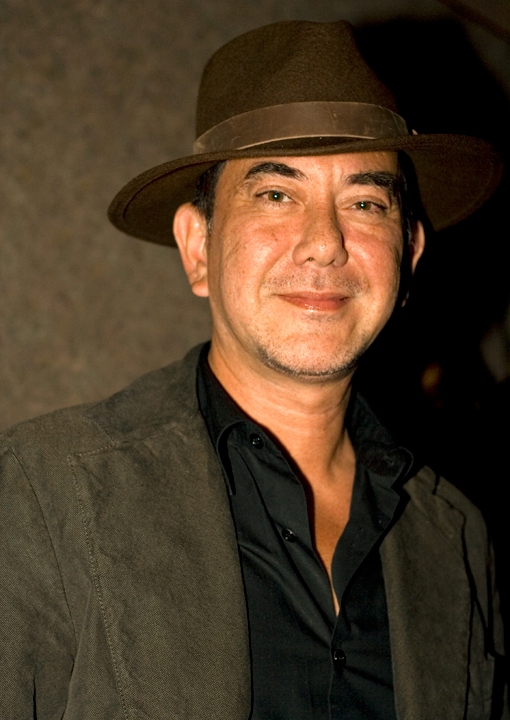|
The Invincible Constable
''The Invincible Constable'' is a 1993 Chinese-Taiwanese martial arts comedy film directed by Hong Kong director Chan Muk-chuen, based on the 19th-century novel ''The Seven Heroes and Five Gallants''. The film was shot in Dajinhu National Geopark () in Taining County, Fujian, a protected area of China. Plot The film is set in 11th-century Song dynasty. Bai Yutang, a young hero nicknamed "Sleek Rat", arrives at the national capital Kaifeng Prefecture to challenge Zhan Zhao (nicknamed "Southern Hero" and "Imperial Cat"), a young constable who works for the incorruptible prefect and judge Bao Zheng. A master of intrusion, Bai Yutang sneaks into the imperial palace at night with ease, but when he tries to leave he only narrowly escapes Zhan Zhao's capture. He returns to his base in Hollow Island and is ambushed and pranked by his sworn brothers Han Zhang ("Earth Rat"), Xu Qing ("Mountain Rat"), and Lu Fang ("Sky Rat"), who throw him into the river to be rescued by the fourth brother Ji ... [...More Info...] [...Related Items...] OR: [Wikipedia] [Google] [Baidu] |
The Seven Heroes And Five Gallants
''The Tale of Loyal Heroes and Righteous Gallants'' (忠烈俠義傳), also known by its 1883 reprint title ''The Three Heroes and Five Gallants'' (三俠五義), is an 1879 Chinese novel based on storyteller Shi Yukun's oral performances. The novel was later revised by philologist Yu Yue and republished in 1889 under the title ''The Seven Heroes and Five Gallants'' (七俠五義), with the story essentially unaltered. Set in 11th-century Song dynasty, the story detailed the rise of legendary judge Bao Zheng to high office, and how a group of ''youxia'' (knights-errant)—each with exceptional martial talent and selfless heroism—helped him fight crimes, oppression, corruption and rebellion. It was one of the first novels to merge the ''gong'an'' (court-case fiction) and the ''wuxia'' (chivalric fiction) genres. Praised for its humorous narration and vivid characterizations, the novel has enjoyed huge readership: it spawned two dozen sequels by 1924 (according to Lu Xun) and s ... [...More Info...] [...Related Items...] OR: [Wikipedia] [Google] [Baidu] |
Jiang Ping (character)
Jiang Ping, courtesy name Zechang, is a fictional Song dynasty knight-errant from the 19th-century Chinese novels ''The Seven Heroes and Five Gallants'' and ''The Five Younger Gallants''. Nicknamed "River Rat" or "River-Overturning Rat" () for his amazing swimming and freediving skills, he is able to stay underwater seemingly forever. He is the fourth sworn brother of the "Five Rats", whose other members are Lu Fang, Han Zhang, Xu Qing and Bai Yutang Bai Yutang, nicknamed "Sleek Rat" or "Brocade-Coated Rat" (錦毛鼠), is a fictional Song dynasty knight-errant from the 19th-century Chinese novel ''The Seven Heroes and Five Gallants''. Handsome, brave, clever and charismatic, Bai Yutang is .... Highly witty, Jiang Ping is one of the most colorful characters in the original novel. He is scrawny, and his appearance more of a sick patient than a fighter, yet he often outsmarts opponents with clever tricks, disguises or lies. Researcher Susan Blader considers him the only "ga ... [...More Info...] [...Related Items...] OR: [Wikipedia] [Google] [Baidu] |
Films Shot In Fujian
A film also called a movie, motion picture, moving picture, picture, photoplay or (slang) flick is a work of visual art that simulates experiences and otherwise communicates ideas, stories, perceptions, feelings, beauty, or atmosphere through the use of moving images. These images are generally accompanied by sound and, more rarely, other sensory stimulations. The word "cinema", short for cinematography, is often used to refer to filmmaking and the film industry, and to the art form that is the result of it. Recording and transmission of film The moving images of a film are created by photographing actual scenes with a motion-picture camera, by photographing drawings or miniature models using traditional animation techniques, by means of CGI and computer animation, or by a combination of some or all of these techniques, and other visual effects. Before the introduction of digital production, series of still images were recorded on a strip of chemically sensitiz ... [...More Info...] [...Related Items...] OR: [Wikipedia] [Google] [Baidu] |
Films Set In Henan
A film also called a movie, motion picture, moving picture, picture, photoplay or (slang) flick is a work of visual art that simulates experiences and otherwise communicates ideas, stories, perceptions, feelings, beauty, or atmosphere through the use of moving images. These images are generally accompanied by sound and, more rarely, other sensory stimulations. The word "cinema", short for cinematography, is often used to refer to filmmaking and the film industry, and to the art form that is the result of it. Recording and transmission of film The moving images of a film are created by photographing actual scenes with a motion-picture camera, by photographing drawings or miniature models using traditional animation techniques, by means of CGI and computer animation, or by a combination of some or all of these techniques, and other visual effects. Before the introduction of digital production, series of still images were recorded on a strip of chemically sensitized ... [...More Info...] [...Related Items...] OR: [Wikipedia] [Google] [Baidu] |
Taiwanese Martial Arts Comedy Films
Taiwanese may refer to: * Taiwanese language, another name for Taiwanese Hokkien * Something from or related to Taiwan (Formosa) * Taiwanese aborigines, the indigenous people of Taiwan * Han Taiwanese, the Han people of Taiwan * Taiwanese people, residents of Taiwan or people of Taiwanese descent * Taiwanese language (other) * Taiwanese culture * Taiwanese cuisine * Taiwanese identity Taiwanese people may be generally considered the people of Taiwan who share a common culture, ancestry and speak Taiwanese Mandarin, Hokkien, Hakka or indigenous Taiwanese languages as a mother tongue. Taiwanese people may also refer to the i ... See also * {{disambiguation Language and nationality disambiguation pages ... [...More Info...] [...Related Items...] OR: [Wikipedia] [Google] [Baidu] |
Chinese Martial Arts Comedy Films
Chinese can refer to: * Something related to China * Chinese people, people of Chinese nationality, citizenship, and/or ethnicity **''Zhonghua minzu'', the supra-ethnic concept of the Chinese nation ** List of ethnic groups in China, people of various ethnicities in contemporary China ** Han Chinese, the largest ethnic group in the world and the majority ethnic group in Mainland China, Hong Kong, Macau, Taiwan, and Singapore ** Ethnic minorities in China, people of non-Han Chinese ethnicities in modern China ** Ethnic groups in Chinese history, people of various ethnicities in historical China ** Nationals of the People's Republic of China ** Nationals of the Republic of China ** Overseas Chinese, Chinese people residing outside the territories of Mainland China, Hong Kong, Macau, and Taiwan * Sinitic languages, the major branch of the Sino-Tibetan language family ** Chinese language, a group of related languages spoken predominantly in China, sharing a written script (Chinese c ... [...More Info...] [...Related Items...] OR: [Wikipedia] [Google] [Baidu] |
Films Based On The Seven Heroes And Five Gallants
A film also called a movie, motion picture, moving picture, picture, photoplay or (slang) flick is a work of visual art that simulates experiences and otherwise communicates ideas, stories, perceptions, feelings, beauty, or atmosphere through the use of moving images. These images are generally accompanied by sound and, more rarely, other sensory stimulations. The word "cinema", short for cinematography, is often used to refer to filmmaking and the film industry, and to the art form that is the result of it. Recording and transmission of film The moving images of a film are created by photographing actual scenes with a motion-picture camera, by photographing drawings or miniature models using traditional animation techniques, by means of CGI and computer animation, or by a combination of some or all of these techniques, and other visual effects. Before the introduction of digital production, series of still images were recorded on a strip of chemically sensitized ... [...More Info...] [...Related Items...] OR: [Wikipedia] [Google] [Baidu] |
Bao Zheng
Bao Zheng (; 5 March 999 – 3 July 1062), commonly known as Bao Gong (), was a Chinese politician during the reign of Emperor Renzong in China's Song Dynasty. During his twenty-five years in civil service, Bao consistently demonstrated extreme honesty and uprightness, with actions such as sentencing his own uncle, impeaching an uncle of Emperor Renzong's favourite concubine and punishing powerful families. His appointment from 1057 to 1058 as the prefect of Song's capital Kaifeng, where he initiated a number of changes to better hear the grievances of the people, made him a legendary figure. During his years in office, he gained the honorific title Justice Bao () due to his ability to defend peasants and commoners against corruption or injustice. Bao Zheng today is honored as the cultural symbol of justice in Chinese society. His largely fictionalized ''gong'an'' and ''wuxia'' stories have appeared in a variety of different literary and dramatic mediums (beginning with ''Th ... [...More Info...] [...Related Items...] OR: [Wikipedia] [Google] [Baidu] |
Ding Zhaohui
''The Tale of Loyal Heroes and Righteous Gallants'' (忠烈俠義傳), also known by its 1883 reprint title ''The Three Heroes and Five Gallants'' (三俠五義), is an 1879 Chinese novel based on storyteller Shi Yukun's oral performances. The novel was later revised by philologist Yu Yue and republished in 1889 under the title ''The Seven Heroes and Five Gallants'' (七俠五義), with the story essentially unaltered. Set in 11th-century Song dynasty, the story detailed the rise of legendary judge Bao Zheng to high office, and how a group of ''youxia'' (knights-errant)—each with exceptional martial arts, martial talent and selfless heroism—helped him fight crimes, oppression, corruption and rebellion. It was one of the first novels to merge the gong'an fiction, ''gong'an'' (court-case fiction) and the ''wuxia'' (chivalric fiction) genres. Praised for its humorous narration and vivid characterizations, the novel has enjoyed huge readership: it spawned two dozen sequels by 19 ... [...More Info...] [...Related Items...] OR: [Wikipedia] [Google] [Baidu] |
Anthony Wong (Hong Kong Actor)
use both this parameter and , birth_date to display the person's date of birth, date of death, and age at death) --> , death_place = , death_cause = , body_discovered = , resting_place = , resting_place_coordinates = , burial_place = , burial_coordinates = , monuments = , nationality = , other_names = , citizenship = , education = Diploma of Performing Arts at the Academy of Drama, Honorary Academician , alma_mater = Hong Kong Academy for Performing Arts , occupation = Actor, singer , years_active = 1985–present , era = , employer = , organization = , agent = , known_for = , notable_works = , style = , net_worth = , height = , television = , spouse = , children = 3 , family = , callsign = , award ... [...More Info...] [...Related Items...] OR: [Wikipedia] [Google] [Baidu] |
Han Zhang
Han Zhang is a fictional Song dynasty knight-errant from the 19th-century Chinese novels ''The Seven Heroes and Five Gallants'' and ''The Five Younger Gallants''. Nicknamed "Earth Rat" or "Earth-Piercing Rat" () for his expertise in land mines, he has a military background. Han Zhang, along with sworn brothers Lu Fang, Xu Qing, Jiang Ping and Bai Yutang are known as the "Five Rats". Han is ranked second in age, and probably is the second best fighter after Bai Yutang, because he not only carries a broadsword but also poisonous darts. Relatively introverted, Han prefers to act alone and is the last of the "Five Rats" to surrender to the government. Portrayal in film and television * Ku Wen-chung in ''King Cat'' (1967) * Chiang Nan in ''Justice Pao'' (1974–75) * Ching Chu in ''Cat vs Rat'' (1982) * Yu Tai-ping in ''House of Traps'' (1982) * Wu Yuan-chun in '' Justice Pao'' (1993–94) * Mark Cheng in ''The Invincible Constable'' (1993) * Yu An-shun in ''The Seven Heroes and ... [...More Info...] [...Related Items...] OR: [Wikipedia] [Google] [Baidu] |
.jpg)



